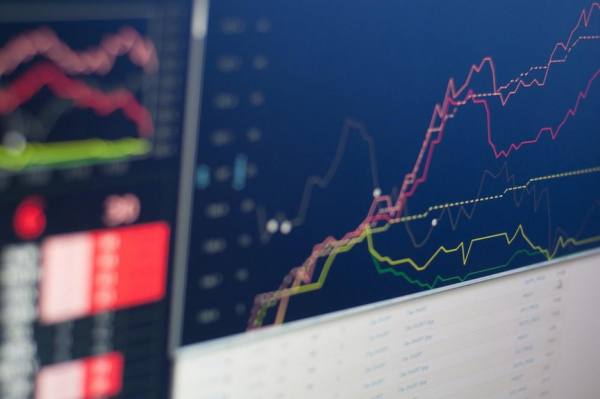Ignored by many retail traders over the past several years, the FX market is now witnessing large price swings across all types of currency pairs. Is this the time to start looking into it once again?
Despite people eyeing other assets such as crypto lately, this is still the most liquid market in the world. The US Dollar is once again rising impulsively, resulting in other currencies following its path. Compared to stocks and crypto, costs of forex trading are low and execution is more accurate. That’s not where the advantages end, though. Let’s take a look at some good reasons to focus on forex lately.

Source: https://unsplash.com/photos/Wb63zqJ5gnE
Higher currency volatility
Quantitative easing combined with zero or negative interest rates have been suppressing volatility in the currency space since the 2008 financial crisis. However, if back then policymakers were stimulating demand in order to generate inflation, now they need to destroy demand so it gets in sync with the limited supply.
In doing so, they cause interest rates to rise and asset purchases to be trimmed, which has the opposite effect – increasing currency volatility. Traders working with XPro Markets can witness clear directional bias in pairs such as EURUSD, which was oddly labeled as one of the most boring pairs to trade on in the past.
Things aren’t going to change dramatically anytime soon, so the elevated volatility in the currency space is bound to continue well into 2023. Those prepared with a trading plan and willing to take risks can possibly find numerous opportunities along the way.
Monetary policy divergence
Although almost all central banks have had to raise interest rates and adjust asset purchases, some have gone to the extremes while others remained relatively gentle. The US Federal Reserve hiked up to 2.25-2.5% at the time of writing, yet other central banks, in particular those in emerging markets, were forced to hike even more, in order to limit their currencies from depreciating.
Xpro Markets review the forex market regularly and the rise of the Dollar has been one of the main themes this year. Countries that rely on foreign flows to finance their debt are now facing hardships when refinancing or issuing new bonds. Higher rates after a period of ultra-loose monetary policy can ultimately lead to lower liquidity in the system, affecting both the public and private sectors, regardless of the country in question.

Source: https://unsplash.com/photos/Q1p7bh3SHj8
Uneven economic activity
Not all geo-regions can be put in the same basket, economic-wise. The United States, despite witnessing GDP contracting for the past two consecutive quarters, is still considered a safe place. Europe, on the other hand, is now facing a severe recession due to an unprecedented energy crisis. Emerging markets, relying on foreign capital, are also poised to face an uncertain period ahead.
These macroeconomic differences are eventually reflected and partially solved via currency exchange rates. Devaluing the currency is still one of the most common convenient ways to get out of a recession, which is why analysts expect the US Dollar to remain bid, at least until the Federal Reserve pivots by signaling steps toward monetary easing.

